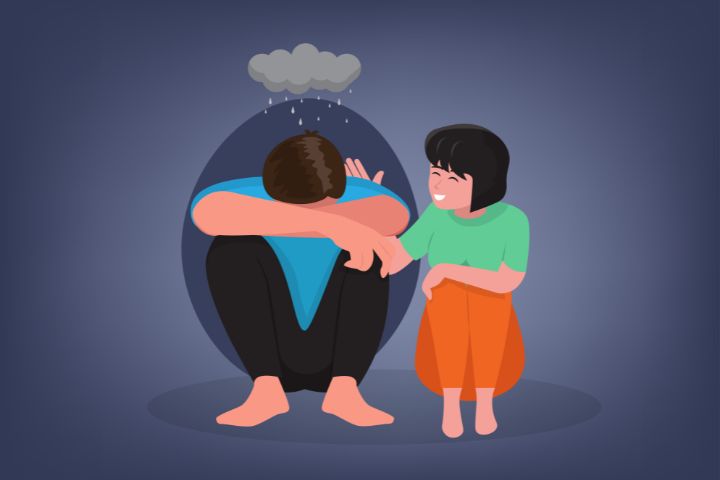
Seeing loved ones dealing with depression is the most painful feeling ever. Especially when it is treatment-resistant depression, you have no clue how to help. But remember, treatment is still possible. You just have not found a suitable option.
Love and support are the core factors in addressing depression. You can help loved ones embark on a new life. Here are a few tips to help them regain emotional resilience:
Be an Active Listener
Psychotherapy, mindfulness, medications,
and alternative therapies are all effective approaches to depression
treatment. But what's more important is the realization of being heard. Sit in
a peaceful environment where your loved one feels comfortable. Listen
actively with an intention to comprehend and support.
Your role is to find out the underlying cause of depression. Pay attention, ask questions, and show interest. Also, maintain eye contact, give empathetic feedback, and show encouragement.
Tip Use the word
"I" when giving feedback. Also, use words like "I see, I
understand, really?" to show interest.
Show Supportive Behavior
Support in the form of companionship is
essential. Depression makes it challenging to perform routine tasks,
schedule a day, and wrap up things on time. Extend a helping hand and assist
loved ones in setting up a routine. Also, assist in completing daily chores.
Maybe they need to have healthy meals.
Prepare meals together, give a reminder call in the morning to wake up on time,
and keep using positive reinforcement. However, be gentle and work with
patience.
Depressed loved ones may resist initially. Try to encourage them by reminding them about their previous achievements. Also, give them hope by highlighting the possibility of success.
Give Space When Needed
Regardless of your concern, some space is essential in almost every relationship. Especially when an individual is depressed, personal space gives a chance to think and regrow. Try to be clear in communication and understand what they mean by personal space.
Do they want to relocate or spend time in another room? Do they want you to stop calling for a few days or want to take a break from work? Also, remember to thank them for being honest about their need for space. This will make them feel more comfortable with you and encourage them to share things in the future.
Step Up to End Stigmatization
Breaking the stigma regarding depression
can make a huge difference. Start with relatives and friends who are closely
related to your loved one. Educate them about depression, its consequences, and
the dire need for support. Show how stigmatization negatively affects an
individual dealing with treatment-resistant depression and why they resist
seeking medical advice.
Try to address misconceptions and gently
deal with negative comments. Also, use studies, research, and experiences to
add value. Share the current stats and highlight recommendations by mental
health experts.
Additionally, teach them how to empower individuals dealing with mental illnesses. Emphasize the significance of peer support and encourage empathetic behavior.
Indulge in Positive Activities Together
For a person dealing with depression, even
fun activities seem like an awful chore. But the support and involvement of a
loved one can make things better. Positive activities can boost happy hormones,
leading to a better mood.
Plan a beach day, go to the gym, or
meditate together. But whatever you plan, consider the person's interests. For
instance, if you plan a physical activity, which one will your loved one
prefer? Is it dancing or hiking? Cycling, jogging, or any other thing?
Likewise, you can plan a friend's reunion, play games, indulge in creative DIY
activities, etc.
Explore Specialized Care
While recovery time is not in your control, you can assist and motivate the person to seek help. Since depression saps energy, seeking specialized treatment may look impossible. But you can show support by searching for a qualified mental health expert.
You can book an appointment and plan a visit when your loved one feels comfortable. Springfield Medical Clinic is one of these platforms that offers comprehensive mental health care.
Be it depression, stress, or any other issue concerning emotional well-being, you can find specialized mental health experts.
Finding specialized care for treatment-resistant depression may be a trial-and-error process. Therefore, have realistic expectations and be patient.
What matters the most is your support in the recovery process. You might feel overwhelmed at times but do not lose hope. Constant support and an optimistic approach can give your loved ones a new life.
